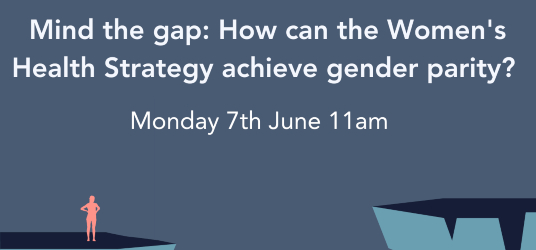International Women’s Day is an opportunity for us to shine a light on the issues affecting women, such as the gender health gap (more on that from Whitehouse here), and how these issues impact groups of women differently. Not all women have the same access to healthcare services, experience of healthcare or even health outcomes.
Two weeks ago, the Department for Health and Social Care announced a new Maternity Disparities Taskforce to explore disparities in maternity care and address poor outcomes for women from ethnic minority communities and those living in deprived areas. For the latest in our guest blog series, Catherine McClennan shares some reflections on how inequalities in maternity care can be addressed and outcomes for mothers improved in the UK.
*
About Catherine McClennan
Catherine McClennan is the Director of Improving Me, a Women’s Health and Maternity (WHaM) Programme, and is leading change in maternity and women’s health services in England.
*
It’s taken over 70 years to get women’s health on the NHS agenda and yet we have known for a long time that looking after women in pregnancy helps to deliver the best outcomes for babies.
Measures to improve health outcomes in childhood often focus on the first 1001 days of life. In Cheshire and Merseyside, we have some of the worst outcomes for women and children; in Liverpool you are more likely to die in the first 12 months of life than in any other area of the UK. That is not down to DNA alone but also environment, life conditions, life chances and access to adequate help and support for our most vulnerable families.
But many of the various initiatives and policies to improve maternity services and reduce maternal and infant mortality are not working. This is why our work and focus on health inequalities at Improving Me is so important.
A few weeks ago, I was privileged to chair a panel discussion with Kathleen Man Gyllenhaal, writer and director of In Utero, a documentary underlining the need to address health inequalities where they start: in the womb. Exploring the connections between genomics and the environment, the documentary argues that only by understanding what happens to women and their babies during pregnancy can we break the harmful cycles that lead to inequality.
Overall, the issues investigated in the documentary add credence to our approach at Improving Me: that we shouldn’t just treat the symptoms but get to the root cause of health disparities. We should start by addressing health inequalities which are more pronounced for women, and in particular for women from Black, Asian and Minority Ethnic communities, as well as women living in deprivation.
Kathleen and I were joined by fellow health care professionals, clinicians, and academics for the discussion. We were united in our passion for ensuring that mothers are truly heard, understood, supported and cared for in their own right and not just considered as being there to provide care for others.
The recent establishment of the Maternity Disparities Taskforce is a welcome step towards achieving this for those – like us – who have been pushing for real change to ensure the safety of women and their babies. We’ll continue to develop this debate during this year’s Baby Week (14-20th November 2022).
In the meantime, we’ll continue to lobby for our communities and work with them to try to reduce the unjust and preventable health inequalities that exist today.
About Improving Me
Improving Me is one of 44 Local Maternity Systems operating within Health Care Partnership (HCP) and Integrated Care Systems (ICS). There will be one where you live.
Guest blog series
We hope you have enjoyed this blog, which is part of Whitehouse’s guest blog series. We want to provide a platform for a variety of organisations to voice their opinions on topics that matter to them. If you would like to be involved, please email scarlett.lawson@whitehousecomms.com
Political Consultancy
The Whitehouse team are expert political consultants providing public relations and public affairs advice and political analysis to a wide range of clients, not only in the United Kingdom, but also across the Member States of the European Union and beyond. We work in a number of sectors including human rights and equalities. For more information, please contact our Chair, Chris Whitehouse, at chris.whitehouse@whitehousecomms.com

